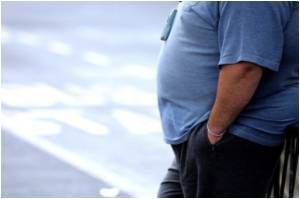Losing a lot of weight at once is the best way to permanently slim down, studies presented at Stockholm's International Congress on Obesity showed, going against accepted wisdom even among doctors.

"Surprisingly, and against current beliefs, this study shows rapid weight loss appears to be superior to gradual weight loss in achieving target weight," she said of the study conducted on subjects weighing around 100 kilos.
Her results showed that 78 percent of those on the rapid diet achieved the target of losing 15 percent of their body weight within the determined period, while only 48 percent of those on the gradual diet met the target.
One of the reasons, she said, is psychological and has to do with motivation.
On the rapid diet, "subjects lose 1.5 kg a week and that keeps them going. On the gradual diet, when you lose 0.5 kg now and then" motivation is harder to keep, she said.
In fact, four of the participants following the gradual diet gave up before the end of the experiment, against only one in the rapid diet group.
Advertisement
"Don't do it by yourself, do it with a dietician," she cautioned.
Advertisement
That is why the researcher is currently following the two groups to see who of the rapid or gradual dieters best keeps the weight off for good. Those results are expected in about three years.
But already, the Netherlands' National Institute for Public Health and the Environment has studied the link between the amount of weight lost during a weight loss programme and the maintenance of the weight loss afterwards.
According to the institute's study, also presented at the conference in Stockholm, 54 percent of those who went down in size during a weight loss programme kept the kilos off, regardless of the amount initially lost.
Furthermore, the study found that net weight loss one year after the intervention was higher for those with a higher initial weight loss.
That means "weight loss of 10 percent or more should be encouraged and favoured above lower weight losses," researcher Jeroen Barte said, adding that his team's findings "dispel a myth."
The researcher however warned "more research is need to determine optimal weight loss targets, and to establish best practices for optimal maintenance of weight losses."
And despite her findings, Katrina Purcell continues to advocate long-term diets because they imply a life-long change in eating habits.
In fact, researchers agree that eating and lifestyle habits are among the main culprits contributing to obesity.
At the congress, experts advocated controlling portion sizes, fighting against aggressive marketing from the food industry, product reformulation to lower salt and sugar contents, different fiscal measures and labelling menus for calorie content.
"We need a cultural change," summed up Bruce Silverglade of the International Association of Consumer food organisations (IACFO), an association of non-governmental organisations.
Source-AFP














